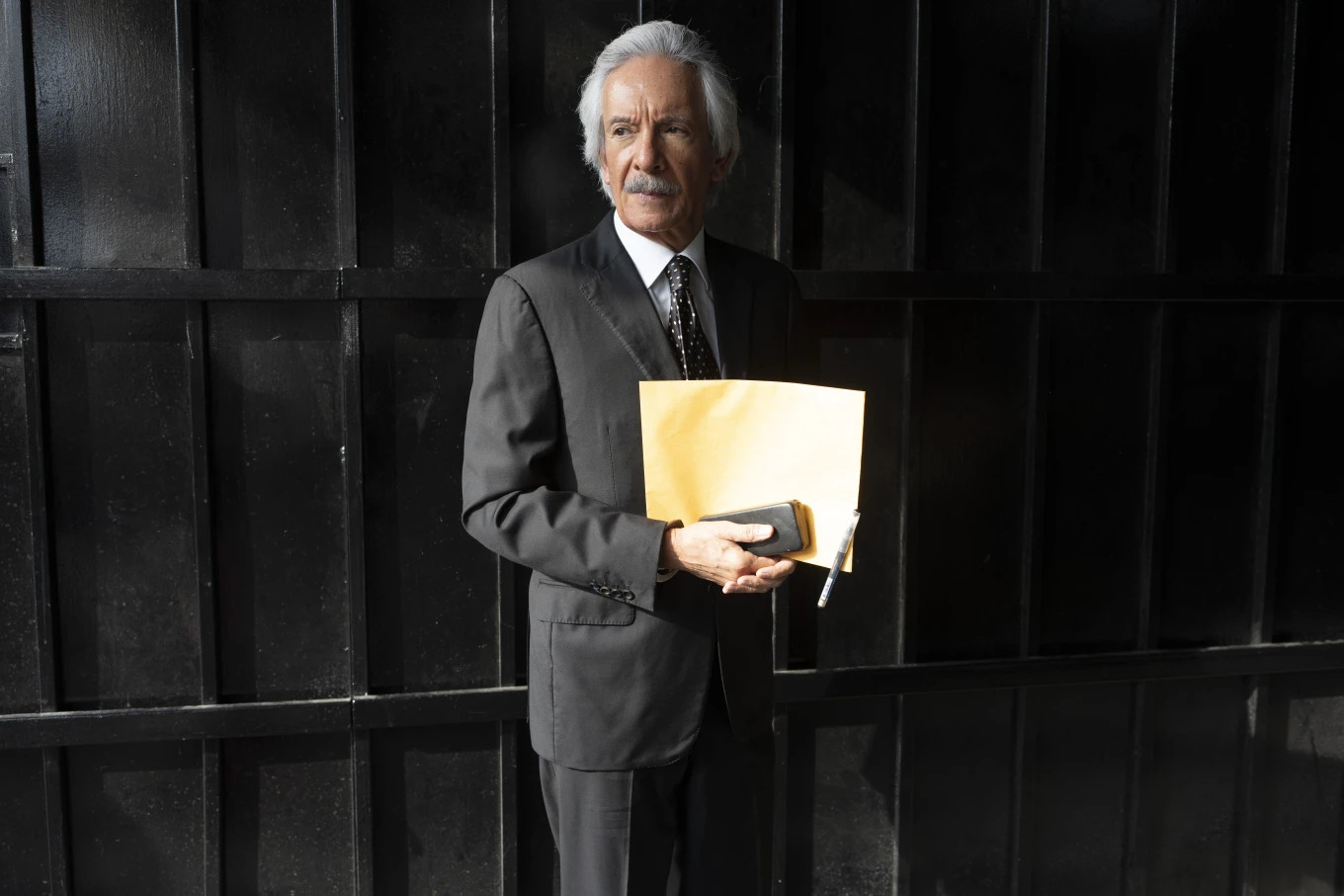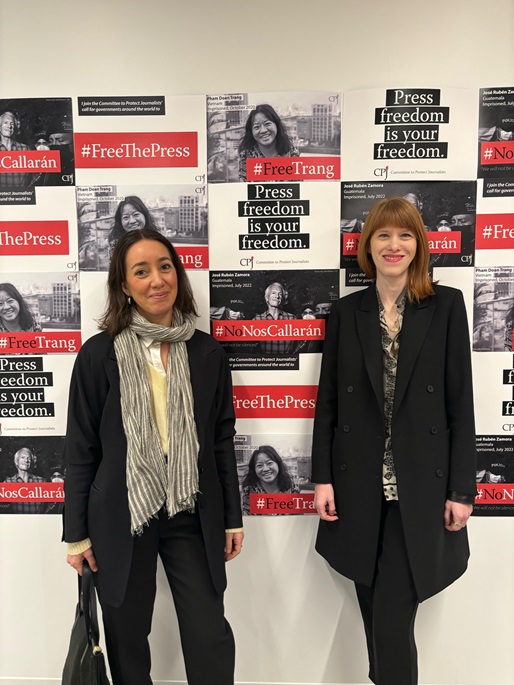
Guatemalan journalist José Rubén Zamora, founder of El Periodico newspaper, arrives for a court hearing in Guatemala City in May 2024. (AP/Moises Castillo)
CPJ welcomes journalist releases, calls for all charges to be dropped
After a court ordered José Rubén Zamora to house arrest on May 15, the journalist remains in prison pending two other charges. Zamora told The Associated Press, “I have to face justice because I can defend myself... I am innocent.” As CPJ awaits Zamora’s full release, we have called on “authorities to immediately drop all charges against him.” Learn more »
|
 Spotlight on Giving: DADA Goldberg Spotlight on Giving: DADA Goldberg
CPJ supporters Defne Aydintasbas (left) and Rebecca Goldberg Brodsky (right) are the Co-Founders of DADA Goldberg, a strategic public relations agency, which has grown to become the premier communications for the design field. In March, they visited CPJ’s New York headquarters at the John S. and James L. Knight Foundation Press Freedom Center with their team to learn more about our work. Learn more »
|
|
Must-read
CPJ spoke with Gaza journalist Shrouq Al Aila from Rafah, where she is sheltering with her 11-month old daughter, Dania, after her husband, Roshdi Sarraj, the founder of production company Ain Media, was killed in an Israeli airstrike. As she takes up the mantle of Ain Media, she hopes her message will be heard: "We as journalists talked about everything. We filmed everything. It is now time for foreign correspondents to come and cover the war. We don’t have any more words."
CPJ staff prepared an in-depth analysis of the difficulty in documenting press freedom violations in Gaza as journalists are killed, arrested, or missing. From the loss of local sources, precarious living conditions, the absence of foreign journalists, communications blackouts, administrative detentions, and a fear of retribution that transcends borders, “Collecting and vetting this information is now taking us weeks or months, and in some cases won’t be possible at all,” said CPJ Program Director Carlos Martínez de la Serna.
CPJ spoke with eight Serbian journalists and advocates, some of whom have left the country out of fear for their safety, to understand a deteriorating situation for journalists under populist President Aleksandar Vučić’s administration. “It’s hard to deal mentally with this level of daily harassment,” one journalist who spoke on the condition of anonymity told CPJ, “with blackmail, threats, stalking, or even unknown people desecrating my mother’s tomb.”
|